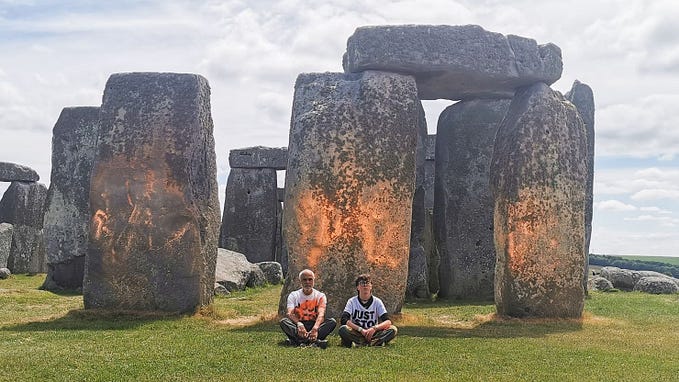What is social comparison theory in Psychology?

We all compare ourselves to others in the social world, whether it is a comparison of looks to that of celebrities that we see in the media or you often compare your talents with that of your friends. Isn’t it!
Don’t we do this? I guess, we all have done the comparison at some point or the other in our lives.
In psychology, ‘Social Comparison Theory’ is one explanation for this tendency that we have to make a comparison between others and ourselves.
Let’s dive deep into this theory.
How making comparisons affects health?
Comparing yourself with others regularly doesn’t have a good impact on mental health and as well as physical health.
It is scientifically proven that 10% of your thoughts involve comparisons of some kind and many people think that comparing themselves regularly to others will help them in finding the motivation to improve.
Yeah, without any doubt you get motivated to improve but you may also experience feelings of deep guilt and dissatisfaction by comparing yourself to others. Even, it can lead to behaviours like disordered eating which is very harmful to the body.
So, stop comparing yourself regularly right away.
What is Social Comparison Theory?

If you look back, then Social Comparison Theory was first proposed in 1954 by the famous psychologist Leon Festinger. He suggested that people have a natural drive in them to evaluate themselves, often in the form of comparison to others.
They make all sorts of judgments about themselves and one of the ways to do it is through social comparison or also by examining the self with others.
To get a better understanding of this theory let’s take an example. Suppose there’s a girl in the class who scored 80 marks out of 100. She is not at all satisfied with the marks. So, what she will do?
Of course, firstly she will compare her marks with those students who scored more than her in the paper. Isn’t it? If she somehow finds that her abilities do not measure up to her peer’s talents, then there are a lot of chances that she might be driven to enhance her abilities.
So, the psychologist Leon Festinger believed that most people engage in this comparison process as a method of establishing a benchmark by which you can make a correct evaluation of yourselves.
How does Social Comparison Theory work?

Let’s see how this theory works.
The Social Comparison Theory involves people who come to know about themselves by evaluating their abilities, attitude, and characteristics in comparison with others.
With whom do you compare yourselves? In most of the cases, you compare yourself to those in your peer group or with whom you are more similar. Isn’t it?
There are two kinds of Social Comparisons
1. Upward Social Comparison
2. Downward Social Comparison.
So, let’s have a look at both of them.
1. Upward Social Comparison
It happens when you compare yourselves with those whom you believe are better than you. It usually focuses on the desire to enhance your current status or level of ability. You might compare yourselves to someone better off and you search for the different ways with which you can achieve similar results.
To make it more clear let’s take an example. Suppose you want to appraise your skills as a football player then you might start by playing the game with your friends or even by practising by shooting the free throws. Isn’t it?
Once you get a clear and deep understanding of what you are capable of and what not then, you might start comparing your performance to the other people that you know.
So, these two things will happen. Firstly you may feel discouraged by the gap between your ability and your friend’s ability and secondly you might realize that you can also become like her or him with lots of practice. This type of comparison actually, helped you to work hard to enhance your abilities. So, the outcome was positive.
But let’s see what happens in Downward Social Comparison.
2. Downward Social Comparison
If you talk about this type then you compare your abilities to a friend who somehow couldn’t make a goal in the football match. In comparison, your performance is much better in the game than your friend.
In this sort of comparison, what do you think will happen? Of course, by observing and noticing the poor skills of your friend you feel better about your abilities. So, somehow you will get self-confidence.
These were the two kinds of social comparisons.
What are the benefits and dangers of comparison?

Do you think that there is any kind of benefits or danger of social comparison? Let’s see what are the pros and cons of social comparisons in detail.
When a particular person compares himself to others as a way to measure their personal development or to get inspired to improve and in this whole process, it helps him to develop a positive image then this kind of comparison proves to be super beneficial.
So, it depends on you that how you react to comparisons. When you compare yourself just to feel more relaxed and happy then you tend to engage in comparison with those people whom you are better so, this kind of practice is very unhealthy.
When you seriously want to improve yourself then compare yourself to the person whom you admire and look up to then you end up working hard to inculcate some of his habits into you. So, this type has a positive impact.
These were some of the benefits of social comparison. Now, you know that everything in this universe has advantages and disadvantages. Now, let’s see what are some of the disadvantages of social comparison.
Theodore Roosevelt in one of his speeches told that “comparison is the biggest thief of the joy” and he may have been right too as social comparison motivates people to improve but side by side it can promote judgemental, biased, and overly competition.
Though most of the people have social skills and strong control to keep their standards for social comparison to themselves and not to act on any envy induced by comparison making, their true feelings may manifest in some other ways.
So, these were the danger of social comparison.
CONCLUSION
Social comparison not only plays a role in the judgments that you make about yourself but also in the way that you behave. As you compare yourself to others, do consider how upward and downward social comparison might influence your self-confidence, self-motivation, and self-esteem, and do check out for negative feelings that might appear as a result of this whole process.
So, do remember these things it’s important.
If you like my work, you can have a look at my personal blog here Shaggy Writes
That’s it, hope you found this post useful. I would be more than happy if you send your feedback, suggestions. Moreover, I love to make new friends and we can be friends.
Instagram: https://www.instagram.com/shaggywrites/
LinkedIn: https://www.linkedin.com/in/shaggywrites/
Twitter: https://twitter.com/shaggywritess








